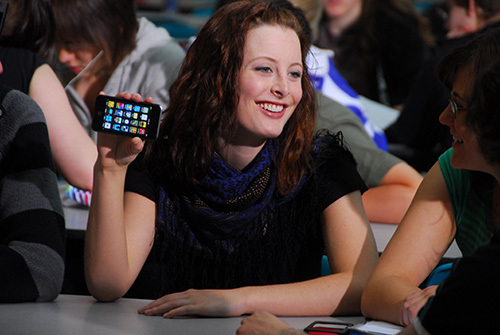
Honrosa Jeff Johnson, Ministro da Educação de Alberta, talked to me last November about his experience as co-chair of the province’s pioneering “Educação Inspiradora” iniciativa. The question posed by his steering committee to all Albertans was: Que tipos de habilidades e atributos devem um Albertan educado graduando-se em 2030 ter? The response, which became the inspiration for education reform in Alberta, was that students needed to be three things: engaged thinkers, ethical citizens, e eles precisavam de ter um espírito empreendedor. What role has technology played in helping educators achieve these goals? I decided it was time to invite Jeff back to A Pesquisa Global para a Educação series to give us an update.
Prior to his position as Minister of Education for Alberta, Honourable Jeff Johnson was Minister of Infrastructure, Minister responsible for the Oil Sands Secretariat, and Parliamentary Assistant to the Treasury Board. Jeff also has experience working in the financial markets as a futures trading floor pit boss and in building a series of successful small businesses.
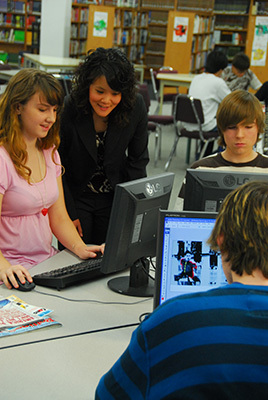
How has technology impacted the Alberta education system? O que os educadores ver como os prós e contras de um ponto de vista de aprendizagem?
Advances in technology have had a big impact on the world and, como um resultado, a big impact on our education system as well. Kids today grow up in a world where they have information at their fingertips and education has had to adjust to meet the needs of those students. This is both a challenge and an opportunity for Alberta’s educators.
When we talked with Albertans during the Educação Inspiradora dialogue, one of the main topics of discussion was technology. Albertans told us that we needed to shift from using technology to support teaching to using technology to support the creation and the sharing of knowledge. A part of that is the development of competencies. We are currently shifting Alberta’s curriculum towards competency-based learning. That means that instead of memorizing facts, kids today are learning skills. Por exemplo, they are learning how to use knowledge to tell fact from fiction online. This is crucial in an age of Wikipedia – kids need to know how to tell if information is credible, a skill that will be important for their entire lives.
The impact of technology on teaching has also been significant. Teachers today use smart boards, so kids can interact with their lessons. They use digital cameras and laptops, so kids can shoot video and make presentations. And technology allows teachers to tailor lessons to an inclusive environment – providing visual cues for someone with a hearing impairment, por exemplo, or tailoring lessons for children with autism.
Como é que o papel do professor em mudança na era digital?
Access to technology and information has forced teachers to think differently about how they plan for learning. Teachers not only have to be users of technology and digital resources, but they have to be keenly aware that students need to understand that information in a digital age needs to be validated. Teachers need to shift their thinking from a single answer or source of information to accommodating multiple ways of getting to the answer using a variety of sources of information. It permits students to engage in new knowledge creation in ways that have never been possible before. Teachers are now more accessible to parents than they have ever been in the past, which is also a different paradigm for teachers.
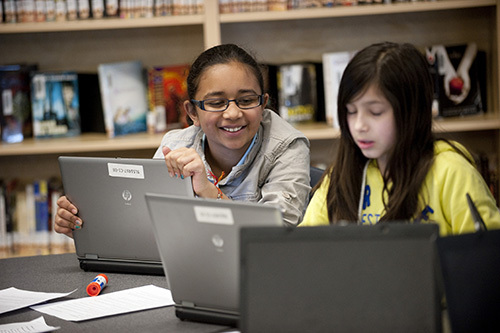
Estados inteiros em os EUA adotaram livros digitais. Bibliotecas universitárias estão se tornando repositórios de conteúdo digital. Many would say textbooks have already gone digital and indeed the next generation of digital content is not far behind. What digital learning tools have been implemented in Alberta classrooms and what do educators see as the pros and cons of these?
School authorities are becoming increasingly interested in incorporating technology and digital resources into their classrooms. Through LearnAlberta.ca, Alberta Education has been providing online access to education materials since 2001. This site is host to approximately 8,500 recursos. Materials include teaching and learning resources (some in the form of interactive applets and engaging software) that are directly correlated to programs of study, as well as reference materials, and access to online programs of study and assessment materials. LearnAlberta.ca has seen an increase in the use of digital materials for teachers and students following the Alberta programs of study.
Além, five Alberta school boards are piloting the development of a Collaborative Online Resource Environment (CORE), accessible at http://www.albertacore.ca, to collaboratively acquire, desenvolver, store, manage, and share digital classroom resources for anytime, em qualquer lugar de aprendizagem. A data, alunos e professores gostam de acesso através de uma infra-estrutura comum compartilhado para mais de 165,000 recursos digitais. Os usuários podem contribuir com recursos que encontram de valor, e posso comentar sobre formas eficazes eles usaram estes em ambientes de aprendizagem. A Universidade de Calgary está realizando uma pesquisa formal sobre este projecto inovador.
Em Alberta, autoridades escolares têm a máxima flexibilidade para determinar que tipos de recursos que vai disponibilizar aos seus alunos, and what policies they will put in place to guide the use of these resources. Teachers determine for themselves what level of technology use is most appropriate to meet the needs of their students. Whatever resources teachers and school authorities select, equity of access and support for inclusive classrooms will continue to be guiding priorities in those decisions.
Tablets have been found to be extremely helpful in supporting students with unique learning needs – examples include:
- Increasing font size for dyslexic students – helps to de-clutter their vision
- English Language Learners – can use the recording features to see and hear themselves speaking which helps with language acquisition
- Sign 4 Me app – helps to facilitate communication between a deaf student and his classmates

How has technology impacted curriculum design in Alberta?
Through Curriculum Redesign, we are looking at various shifts for curriculum and curriculum development. One of these shifts is to move to a more digitally based curriculum (programs of study, assessments, and learning and teaching resources).
O poder da tecnologia deve ser aproveitado para apoiar a inovação e a descoberta. Prevemos que a mudança para um currículo mais digital permitirá uma maior flexibilidade no nível local para apoiar a aprendizagem a qualquer momento, lugar ou ritmo, bem como a oportunidade de melhorar e atualizar continuamente programas de estudo e recursos de aprendizagem.
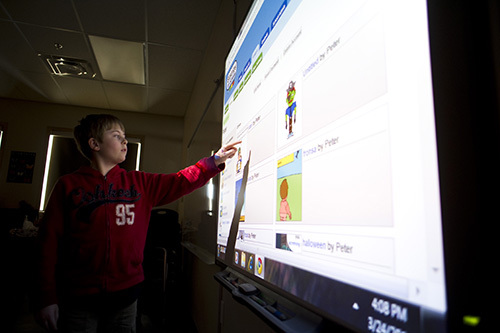
The latest Pew research once again indicates that the use of tablets, telefones celulares, internet sources and social media platforms such as Facebook and Twitter continues to infiltrate classrooms in the US rapidly. Are you seeing the same trend in Alberta classrooms? Até que ponto o uso dessas ferramentas faz parte do seu currículo? Existe uma idade abaixo da qual você acredita que essas ferramentas não são apropriadas nas salas de aula?
Alberta is seeing these same trends. We would say that technology is being used appropriately across all grades because in Alberta we have balanced curriculum that includes a balance of learning activities, with technology and other resources, as well as interaction and daily physical activity.
Alberta Education is currently engaged in a research community of practice that is investigating potential uses of technology, including tablet devices, in Kindergarten to Grade 4 salas de aula. One of the focuses is to explore what applications of technology are most effective and appropriate for various age groups.
There are several school authorities in Alberta that have invested in class or school sets or portable carts of tablet or laptop devices, like Chromebooks, and interest in educational technology continues to increase throughout the education system. Alberta Education is currently working to finalize an updated Learning and Technology Policy Framework to establish a common vision for technology’s role in education, in alignment with Educação Inspiradora. This vision will help decision makers at all levels take appropriate actions that will complement each other and yield maximum benefit for students.
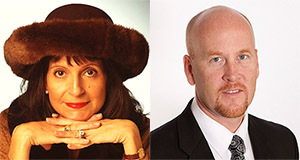
All photos are courtesy of Ministry of Education Alberta.
Para mais artigos na Got Tecnologia? série: A Pesquisa Global para a Educação: Got Tecnologia? – Finlândia, A Pesquisa Global para a Educação: Got Tecnologia? – Austrália, A Pesquisa Global para a Educação: Got Tecnologia? – Cingapura, A Pesquisa Global para a Educação: Got Tecnologia?- Estados Unidos, A Pesquisa Global para a Educação: Got Tecnologia? Escolas IB em um mundo virtual, A Pesquisa Global para a Educação: Got Tecnologia? – Argentina
Na busca Global para a Educação, se juntar a mim e líderes de renome mundial, incluindo Sir Michael Barber (Reino Unido), Dr. Michael Bloco (EUA), Dr. Leon Botstein (EUA), Professor Clay Christensen (EUA), Dr. Linda, Darling-Hammond (EUA), Dr. Madhav Chavan (Índia), Professor Michael Fullan (Canadá), Professor Howard Gardner (EUA), Professor Andy Hargreaves (EUA), Professor Yvonne Hellman (Holanda), Professor Kristin Helstad (Noruega), Jean Hendrickson (EUA), Professor Rose Hipkins (Nova Zelândia), Professor Cornelia Hoogland (Canadá), Honrosa Jeff Johnson (Canadá), Senhora. Chantal Kaufmann (Bélgica), Dr. Eija Kauppinen (Finlândia), Secretário de Estado Tapio Kosunen (Finlândia), Professor Dominique Lafontaine (Bélgica), Professor Hugh Lauder (Reino Unido), Professor Ben Levin (Canadá), Senhor Ken Macdonald (Reino Unido), Professor Barry McGaw (Austrália), Shiv Nadar (Índia), Professor R. Natarajan (Índia), Dr. PAK NG (Cingapura), Dr. Denise Papa (US), Sridhar Rajagopalan (Índia), Dr. Diane Ravitch (EUA), Richard Wilson Riley (EUA), Sir Ken Robinson (Reino Unido), Professor Pasi Sahlberg (Finlândia), Professor Manabu Sato (Japão), Andreas Schleicher (PISA, OCDE), Dr. Anthony Seldon (Reino Unido), Dr. David Shaffer (EUA), Dr. Kirsten Immersive Are (Noruega), Chanceler Stephen Spahn (EUA), Yves Theze (Lycée Français EUA), Professor Charles Ungerleider (Canadá), Professor Tony Wagner (EUA), Sir David Watson (Reino Unido), Professor Dylan Wiliam (Reino Unido), Dr. Mark Wormald (Reino Unido), Professor Theo Wubbels (Holanda), Professor Michael Young (Reino Unido), e Professor Minxuan Zhang (China) como eles exploram as grandes questões da educação imagem que todas as nações enfrentam hoje. A Pesquisa Global para Educação Comunitária Página
C. M. Rubin é o autor de duas séries on-line lido pelo qual ela recebeu uma 2011 Upton Sinclair prêmio, “A Pesquisa Global para a Educação” e “Como vamos Leia?” Ela também é autora de três livros mais vendidos, Incluindo The Real Alice no País das Maravilhas.


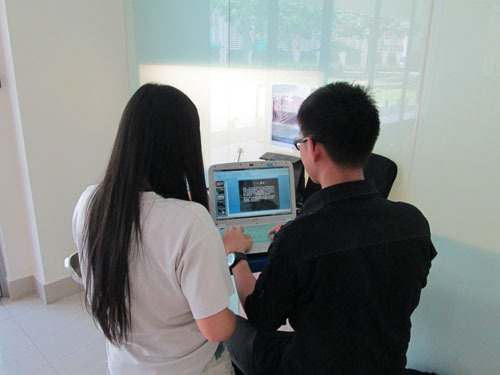
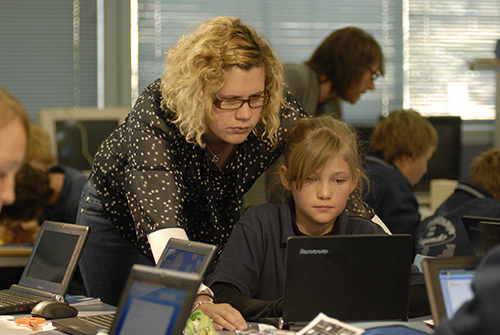
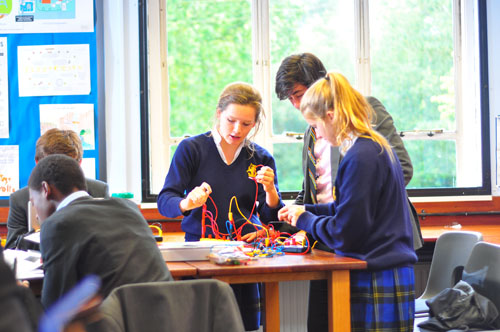
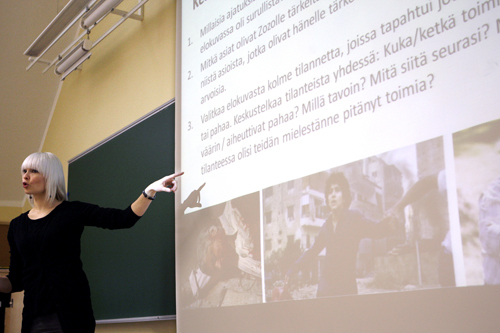
Comentários Recentes